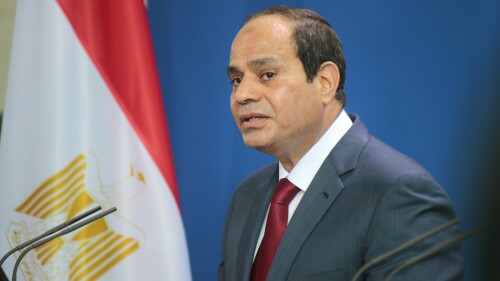The young Jewish state had barely been born yet was already on the brink of collapse on June 22, 1948, when the arms ship Altalena was shelled by Israeli guns off the coast of Tel Aviv. The Altalena had been purchased by the Irgun (National Military Organization) under Menachem Begin’s leadership with the hope of arming its faction’s fighters in the struggle for independence. The arms shipment deal was signed before May 14, 1948, when the British Mandate ended and Israel was declared a state. One of the first laws passed by Israel’s first prime minister, David Ben-Gurion, after Israel was recognized was the unification of all the underground military factions into one army supervised by the defense ministry.
Given this unification, such an arms shipment, in Ben-Gurion’s view, was a threat to the new army and the authority of the state. In addition, Ben-Gurion had a personal distaste for, even distrust of, Menachem Begin. As he declared at a Cabinet meeting the morning of June 22, “there are not going to be two states … and there are not going to be two armies.” Ben-Gurion feared that if the shipment reached the members of the Irgun, it would cause more political fragmentation, encouraging former Irgun members who had recently joined the Israel Defense Forces to disengage from the army and act on their own. Moreover, Jerusalem was not part of the military unification, and there were still members of the Irgun who were operating independently.
The Altalena saga was one of Ben-Gurion’s most trying moments; the Jewish state stood on the precipice of a civil war. Ariel Sharon is now facing his own Altalena as he moves forward with the disengagement plan from Gaza. Tens of thousands of Israelis aligned with the right arrived in Jerusalem on September 12, 2004, to participate in a massive demonstration against Sharon’s unilateral disengagement from the Gaza Strip.
Sharon is now seen by the far right within his Likud Party as one who has lost his way. Moshe Feiglin, the head of the Manhigut Yehudit faction of the party, supports this view, saying: “The Likud cannot continue to be led by a man who acts against its ideology and violates all its decisions. If this works, all the ministers and MKs [Members of the Knesset] will be forced to reveal their views and stop hiding ahead of key votes in the Knesset and the Cabinet.” In addition, today we are hearing accusations similar to those about Yitzhak Rabin during the Oslo years: Politicians and protesters are calling Sharon a traitor. Tensions will be exacerbated when Israeli soldiers are forced to evacuate settlements that they or their families reside in.
Ben-Gurion’s declaration about the unity of the state is as important today as it was over 55 years ago. The question is will disengagement from the Gaza Strip unite or divide the people of Israel?
The challenge that the Sharon government faces is this: Can he be seen as the voice of the people, or will his actions create only greater fragmentation in Israeli society? Moreover, key Arab neighbors, such as Egypt, will promote Sharon’s plan only if Gaza does not turn into what they regard as one large jail. In their view, this means that the borders must be open (sea, air and land) and that the Israel Defense Forces will not re-enter Gaza.
Both of these conditions are obviously problematic, since both involve the safety and well-being of Israeli citizens and could lead to the creation of a neighboring terrorist-led state. Of the two, agreeing not to re-enter Gaza is the more difficult. As was shown in Jenin in 2003, if the Palestinian Authority cannot (or will not) prevent terrorism, Israel must respond.
The long-term future of Israel’s political stability is on the line. The Oslo Accords and Arafat’s death have been turning points in the Israeli-Palestinian relationship. The challenge is how to achieve a middle ground without having another Altalena. If politics is the art of the possible, it also means making unpalatable and unpopular decisions in pursuit of a strategic goal. If that goal were better articulated by Sharon, Israel’s ‘silent majority’ would likely speak up and quell the flames that threaten to engulf the society once again.
Asaf Romirowsky is a Campus Watch Associate Fellow for the Middle East Forum and the Israel Advocacy Associate for the Jewish Federation of Greater Philadelphia.







